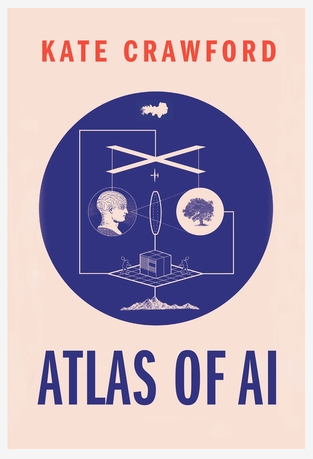I’ll admit I’m a HUGE believer of advances in Artificial Intelligence. Deep learning or just general machine learning. From Bayesian beginnings to GANs and CNNs, I’m all about data, ML and all of the promises it’s future holds. The problems it can solve today seemed impossible just 10 years ago. So naturally when I learned of the 2021 release of Atlas of AI I immediately ordered it.

When it arrived I dove into the text, eager for more knowledge and understanding in this exciting field.
But instead of excitement and being a sponge for fresh knowledge, I found the first chapters draining. Like earth-depleting depressing.
At first I pushed back in my mind – “Not that bad” etc.
Honestly I think in my exuberance I didn’t even read the book’s subtitle “Power, Politics, and the Planetary Costs of Artificial Intelligence”.
I know there is a cost to all technology and literal or figurative “mining” excel at wasting resources, stressing environments but I wasn’t ready to read more doom and gloom at that time. The book went on the shelf.
Fast forward over a year later to my first fossil-fuelled odyssey in three years. A 10,000 km round-trip flight, 10+ hours in the air and I need a book…
ROUND 2: I began Atlas of AI again and re-read those first chapters with much less scrutiny, bias, and a far more open mind. As someone who has paid to use heavy GPU time on Colab to generate frivolous, yet remarkable images, I may need to look in the mirror.
Once I shed my reactionary defence of all things ML I began to understand and even appreciate the author’s point of view. I do believe many corporations will also begin to weigh ethical and environmental costs of Artificial Intelligence.
Today’s announcement by Microsoft to retire facial inference of emotional state is just one instance where I see more companies coming to terms with the ethics of AI. Perhaps guided by this book.
A must-read for anyone practicing ML